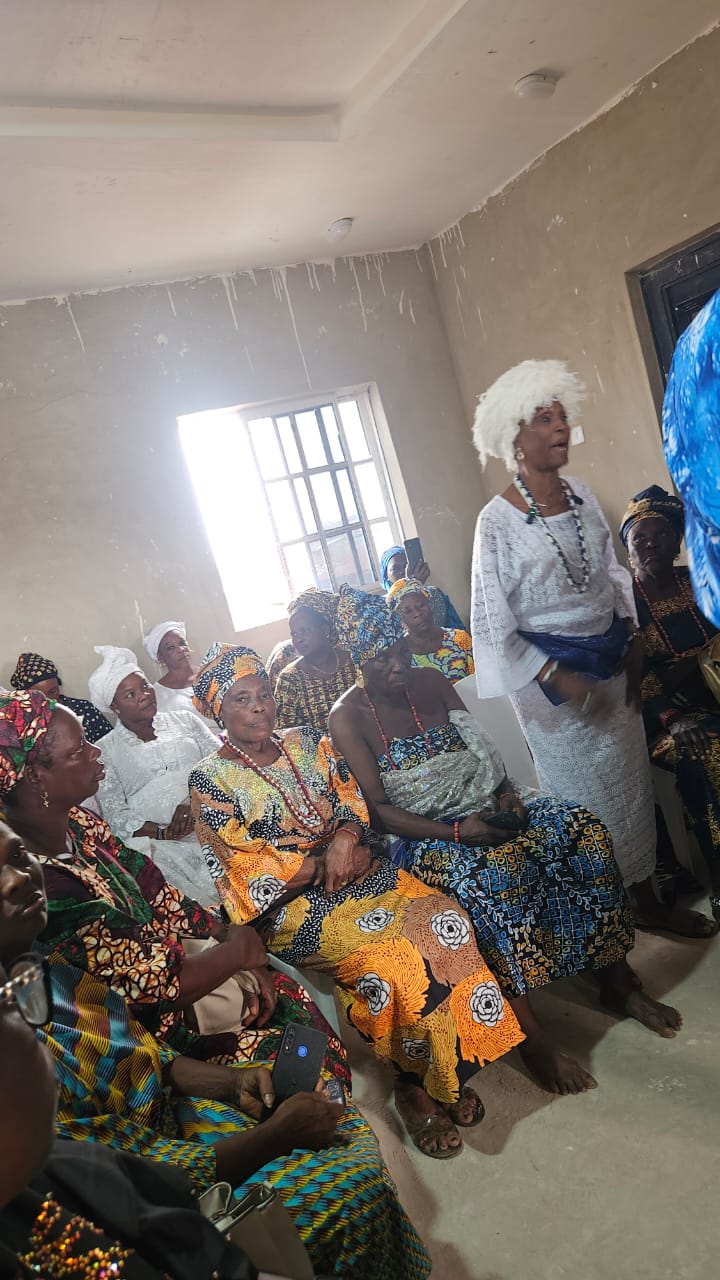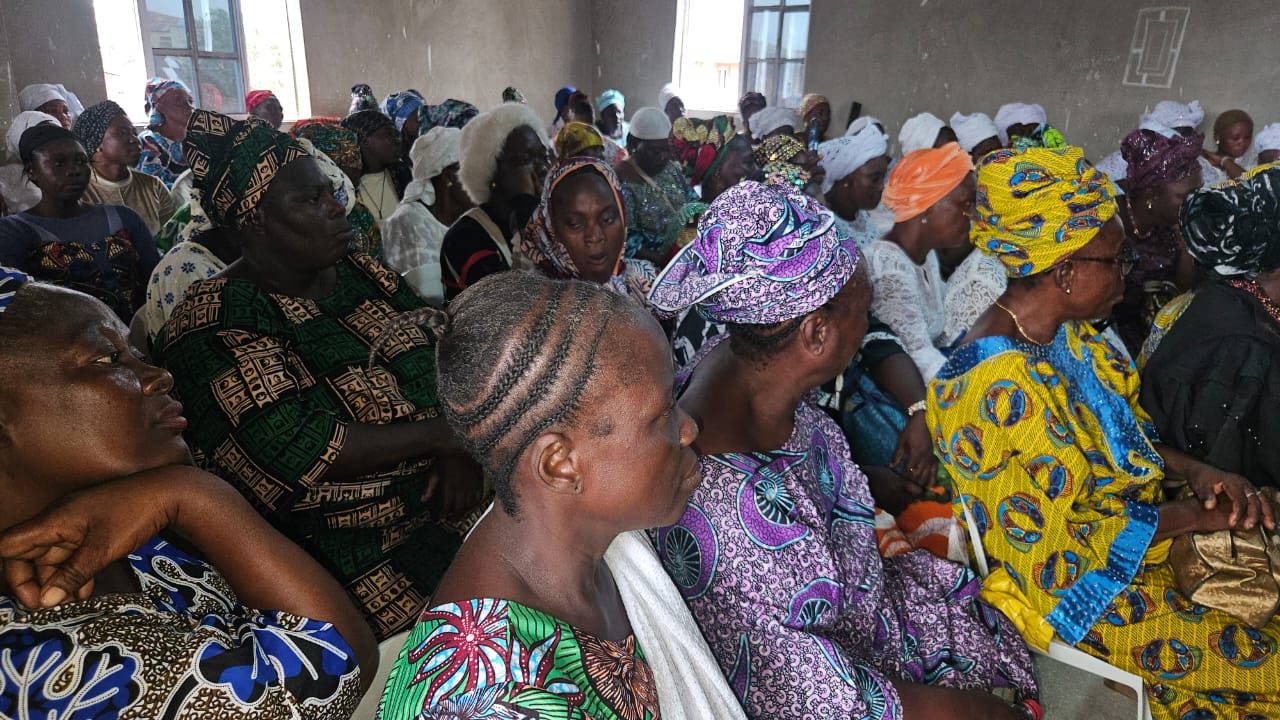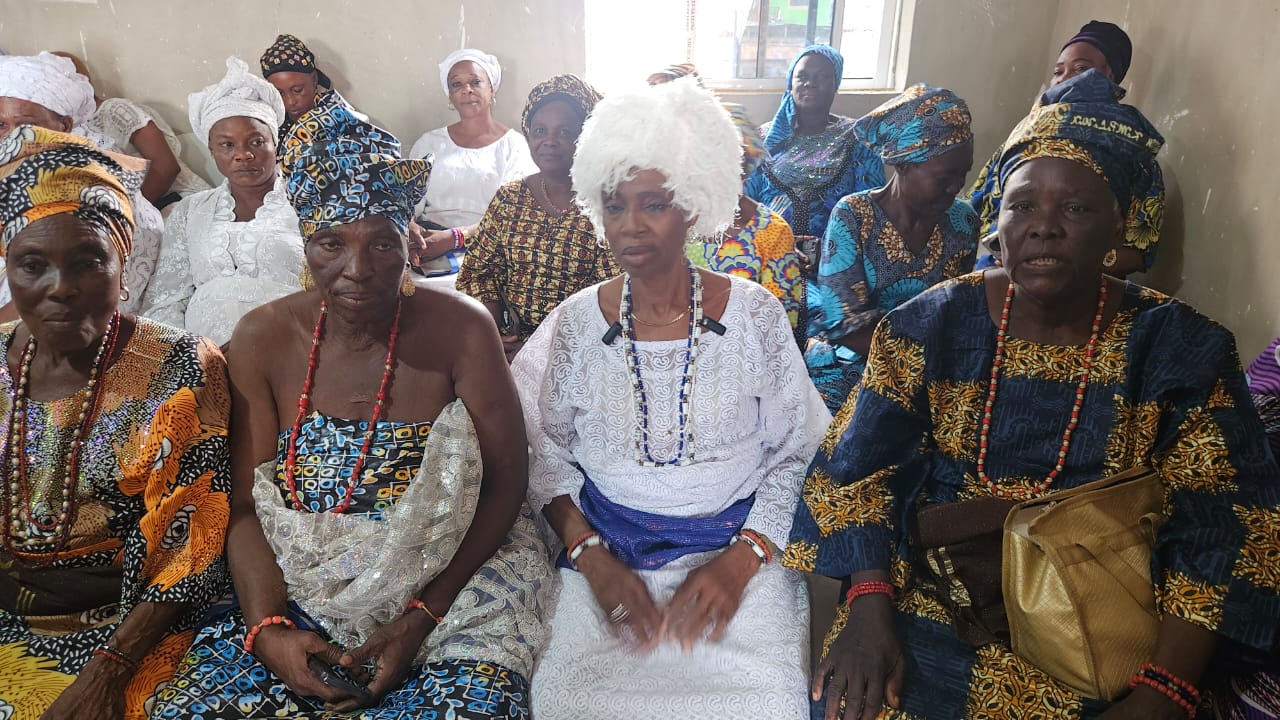society
Appraising the Police Act Amendment Bill* By Philip Agbese

*Appraising the Police Act Amendment Bill*
By Philip Agbese
In a groundbreaking development poised to transform the landscape of law enforcement in Nigeria, the visionary Hon. Makki Abubakar Yalleman has championed the introduction of the Police Act Amendment Bill to the National Assembly. This legislative milestone seeks to address the longstanding inadequacies of the existing Police Act, which has been in force since 2004.
The amended legislation aims to revolutionize police operations by enhancing accountability, modernizing policing methods, and fostering a more harmonious relationship between law enforcement agencies and the communities they serve. By doing so, it will significantly bolster public trust, improve crime prevention and response strategies, and ultimately contribute to a safer and more secure Nigeria.
This landmark legislation represents a critical step towards a nation where law enforcement officers are not only enforcers of the law but also trusted guardians of our communities, dedicated to protecting and serving with integrity and professionalism. In the quest for a more robust, responsive, and people-friendly policing system in Nigeria, the Police Act Amendment Bill shines as a beacon of hope and a significant milestone.
This amendment bill, designed to enhance the effectiveness and efficiency of the Nigerian Police Force, serves as a testament to the nation’s unwavering commitment to law enforcement and security, demonstrating a resolve to create a safer and more secure environment for all citizens.
One of the most profound and far-reaching provisions of the Bill is its emphasis on fortifying the police workforce, achieved through the extension of service years for seasoned officers. By leveraging their expertise and fostering a sense of institutional memory, the legislation enables the development of a more proficient and effective police force, capable of navigating complex security challenges with greater aplomb.
Moreover, the retention of experienced personnel alleviates the burden of constant recruitment and training, yielding significant cost savings that can be redirected towards the procurement of essential equipment and resources.
Another significant facet of the Bill is its commitment to community policing, a paradigm shift that acknowledges that law enforcement is a shared responsibility between the police and the public. By empowering communities to assume ownership of their security, the Nigeria Police Force will become more responsive to local needs, cultivating a culture of mutual trust, cooperation, and collaboration.
Furthermore, the Bill prioritizes police welfare, a critical aspect that has been historically overlooked. By improving working conditions, enhancing training, and providing better equipment, the legislation will significantly boost police morale and motivation, leading to enhanced performance, dedication, and a renewed sense of purpose.
Additionally, the Bill’s emphasis on gender mainstreaming and diversity will ensure a more inclusive and diverse police force, better equipped to serve the diverse needs of Nigerian communities, fostering a more just and equitable society for all.
Another vital provision of the Bill is the establishment of a Police Complaints Commission, an autonomous body responsible for investigating allegations of police misconduct, thereby ensuring accountability, transparency, and justice. This mechanism will further solidify public trust in the police, as it demonstrates a commitment to addressing concerns and promoting a culture of responsibility within the force.
Moreover, the Bill addresses the critical issue of police morale by enabling the retention of experienced officers, thereby fostering a sense of stability and mentorship within the force. This, combined with the potential for improved job satisfaction, can significantly enhance morale, leading to a more motivated and effective police force. A motivated police force is demonstrably more effective in preventing crime, fostering trust within communities, and ultimately ensuring the safety and well-being of all Nigerians.
It is noteworthy that the impact of this Bill extends beyond the internal workings of the police force, having far-reaching implications for national security. By ensuring a more experienced and well-resourced police force, the Amendment Bill has the potential to significantly enhance the nation’s capacity to combat crime, terrorism, and other threats. A professional and competent police force is better equipped to maintain law and order, creating a safer environment conducive to business growth, investment, and national prosperity.
The realization of meaningful change requires the implementation of a clear vision. Hence, the foresight and leadership demonstrated by the bill’s sponsor, Hon. Makki Abubakar Yalleman – the distinguished Chairman of the House Committee on Police Affairs and esteemed Member Representing Mallammadori/Kaugama Federal Constituency – are truly commendable.
Hon. Makki has also demonstrated exemplary leadership and a steadfast commitment to service through his numerous contributions to his constituency. Noteworthy achievements include renovating schools, reconstructing damaged roads, implementing rural electrification projects, and donating foodstuff to the needy and less privileged. These accomplishments serve as a testament to his dedication to the betterment of his community.
Furthermore, his generosity in donating Patrol Vehicles to the Nigeria Police Force in Mallammadori and Kaugama Federal Constituency underscores his resolve to enhance the effectiveness and efficiency of the police force.
The Police Act Amendment Bill, a landmark legislation, marks a significant step forward in prioritizing experience, morale, and resources within the police force, paving the way for a future where security and trust are intertwined. The overwhelming support for the Bill’s spirit during the public hearing is a resounding endorsement of Hon. Makki’s visionary leadership, which has inspired a shared conviction in the Bill’s potential to positively impact the lives of all Nigerians.
Among the bill’s sponsors, Hon. Makki Abubakar Yalleman stands out as a paragon of dedication and commitment, driving the legislation with his unwavering spirit and dedication. The Police Act Amendment Bill has garnered widespread acclaim from diverse stakeholders, who have unanimously commended the spirit and intent behind the legislation. During the public hearing, representatives from civil society organizations, the legal profession, and community groups all acknowledged the Bill’s transformative potential for Nigerian policing.
This broad support is a testament to the inclusive and participatory approach adopted by Hon. Makki and his team, demonstrating a commitment to collaborative governance and a passion for meaningful reform. As this visionary Bill progresses through the legislative process, it is imperative to maintain the momentum and ensure its successful enactment. Nigeria is indebted to Hon. Makki and his team for their foresight, perseverance, and unwavering commitment to creating a safer, more secure Nigeria for generations to come.
Together, we can forge a future where the Nigerian Police Force is not only feared but respected and revered as a vital partner in building a safer, more prosperous Nigeria, where security and trust triumph.
Agbese is the Deputy Spokesman, 10th House of Representatives, writing from Abuja.
society
TO THE BUTCHER OF KAIAMA

TO THE BUTCHER OF KAIAMA
BY Chief Femi Fani-Kayode
“His words were as smooth as butter yet war was in his heart”- Psalm 55: 21.
To Sadiku, the Butcher of Kaiama, I write the following.
I watched a video that provided graphic and disturbing evidence of your murderous activities.
You are the homicidal maniac and accursed soul that led the cowardly attack on our people in Kaiama where you massacred over 200 innocent Nigerians of both the Muslim and Christian faith even as they were praying.
Christians were burnt in their Churches and Muslims were burnt in their mosques.
People that ran to hide in their houses were hacked into pieces and burnt in their homes with their families.
Women and children were shot, macheted and burnt alive even as they prayed.
You used up all your bullets then you resorted to using machetes and cudgels to finish the job.
We know the vampiric forces and satanic entities that you serve, what they do with the blood, what they gain from it’s shedding and what they seek to achieve.
We know the dark spirits and demonic cult that use and possess you, that operate in the astral plain and that are known as the hidden hand.
You are not a leader and you are nowhere near the top of your Luciferean high command.
You are nothing but a low-level enforcer, a useful idiot, a shape-shifting reptilian, an expendable tool, an inconsequential pawn and a genocidal butcher that does their bidding and that will burn in hell forever.
Yet despite all your unrelenting wickedness and unprecedented cruelty, not just in Kaiama but everywhere else that you and yours have killed, pillaged, plundered and abducted in our nation, you will NEVER conquer or break the spirit of our people or dismember our nation because God is against you and the ancient boundaries cannot be broken.
You are a servant of Shaitan, the Prince of Darkness yet you know that darkness cannot overcome light and that your time is short.
Now hear this: your end will come soon and it will be worse than that of Abubakar Shekau, Osama Bin Ladin, Abu Bakr Al Baghdadi, Abu Musa Al Barnawi and all the other genocidal maniacs and terrorists put together.
You are a man of blood and you will end in blood. You lived by the sword and you will die by the sword.
You killed our people though they did you no harm and though they were innocent and defenceless.
You slaughteted our women and children without pity or mercy.
You killed our soldiers with impunity despite their courage and gallantry.
You targetted our elders and traditional rulers despite their appeals and in spite of all their efforts.
You killed the Christians and you killed the Muslims even as they worshipped and prayed to God.
It is in the same way that you and the cruel hordes of Mordor that march with you shall be killed without mercy.
The innocent blood you have shed shall speak against you and yours before God in Heaven, the Sword of the Lord shall cut you and yours to pieces and the East Wind of destruction shall scatter and blow you and yours away from generation to generation.
The Bible says there is no peace for the wicked and therefore you shall have no peace: neither shall your lineage or anyone that has your blood excel.
The Bible says “touch not my anointed and do my Prophets no harm”: you have touched the anointed of the Lord and done His Prophets harm therefore you shall reap what you have sown.
The Creator of the Universe, the God of Heaven and Earth, the Lord God of Hosts, the Ancient of Days, He that is high and lifted up who holds the world together by the power of His word and He who is irresistible and mighty in battle WILL avenge us and strike you down.
These words are sealed by the Blood of Yeshua and cannot be altered or resisted.
Your end shall be worse than that of Sennacherub, Pharaoh, Herod, Jezebel and Goliath.
I say to you today that you are the uncircumcised Philistine that has chosen to defy the Armies of the Living God and like the uncircumcised Philistine that David slew you shall be slain before the eyes of the world, we shall see your rotting corpse spread across the field of battle and your entire bloodline shall be brought to an end.
I, Sadauki, have spoken these words and so it shall be in the mighty name of Yeshua HaMashiach, the God whose I am and the God whom I serve.
To our people I say do not be detered, do not be dismayed and do not be afraid for the Lord our God is with us.
I say the Egyptians we see today, we shall see them no more.
I say fight the good fight with all thy might without regret or relenting in the knowledge that good always prevails over evil.
I say seek victory and achieve it for our nation, for our women, for our children and for future generations yet unborn.
This we must do and God will give us the strength and courage to do it.
For our great nation Nigeria it is LIFE, VICTORY and a NEW and GREAT beginning but for ISWAP, Ansaru, Boko Haram, Lakurawa and the Legions of Hell behind them, it is DEATH, DEFEAT and DESTRUCTION.
Peace, joy, abundance, prosperity, hope, strength, courage, love, unity, long life, all manner of blessings and a glorious and expected end is our future and our portion and nothing can change it.
Whether it be affliction, trial, tribulation, persecution, infirmity, pain, loss, suffering, lack, incarceration, torture, humiliation or even death, as the Book of Romans 8: 31-39 said, NOTHING can separate us from the love of the Lord and nothing can negate or break the sure word and promises of Christ Jesus.
He is is our strength, our shield, our glory and the lifter of our heads.
He SHALL see us through and deliver us from the hand of the heathen and bloodthirsty and evil men.
I conclude with the words of Psalm 35:1,
“O Lord, contend against those who contend against us, fight against those who fight against us, take hold of shield and buckler and rise for our help, draw the spear and javelin against our pursuers, say to our souls I am your deliverance”.
So it is and so it shall be in the mighty name of our Lord and Saviour Jesus Christ of Nazareth, son of the Living God!
(Chief Femi Fani-Kayode is a former Minister of Culture and Tourism, a former Minister of Aviation, the Sadaukin Shinkafi, the Wakilin Doka Potiskum, the Otunba of Joga Orile, the Aare Ajagunla of Otun Ekiti and a legal practitioner)
society
Awujale Succession: Traditionalists Back Gov Abiodun’s Intervention
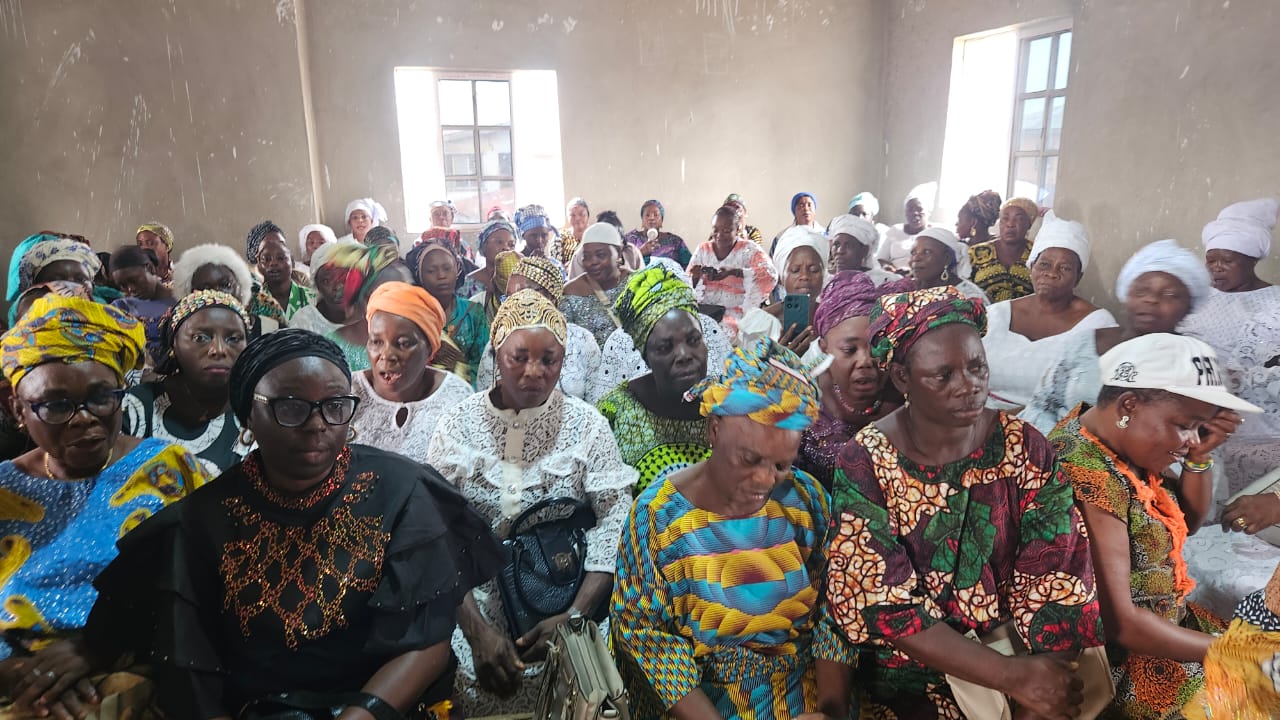
Awujale Succession: Traditionalists Back Gov Abiodun’s Intervention
…Harps On Sanctity, Integrity of The Selection Process
A group of traditionalists in all the towns and villages across Ijebuland has commended the Ogun state Governor, Prince Dapo Abiodun for his timely intervention in halting the selection process of the Awujale vacant stool.
The socio-cultural group said the temporary suspension of the process would allow room for critical assessment of the exercise in order to uphold the sanctity and integrity of the highly revered throne.
They made their stance known on Tuesday, January 10, 2026 while addressing journalists at their secretariat in Ijebu Ode.
The traditionalists added that the Governor’s decision was in strict compliance with the 2021 Ogun State Chieftaincy Law “which clearly empowers the government to intervene whenever there are issues capable of undermining the process, fairness and public confidence”.
Speaking at the meeting, Iyalorisa General of Ijebuland, Chief (Mrs) Osoteku Alawiye expressed confidence in the Governor’s action, but noted that a credible and qualified candidate from the ruling house must emerge at the end of the selection process.
According to her, the Awujale stool is one of the most revered traditional institutions in Yoruba land and a paramount stool in Ogun State, and should be accorded a high level dignity it really deserves”, Chief (Mrs) Alawiye added .
They appealed to Gov Abiodun not to listen to detractors who were hell-bent in scuttling the selection process, stressing that as traditionalists, they are also closely monitoring the process so far for the betterment of the entire sons and daughters of Ijebuland.
society
Funke Akindele, Toyin Abraham’s Box Office Success Result Of Strategic Marketing- Banwo
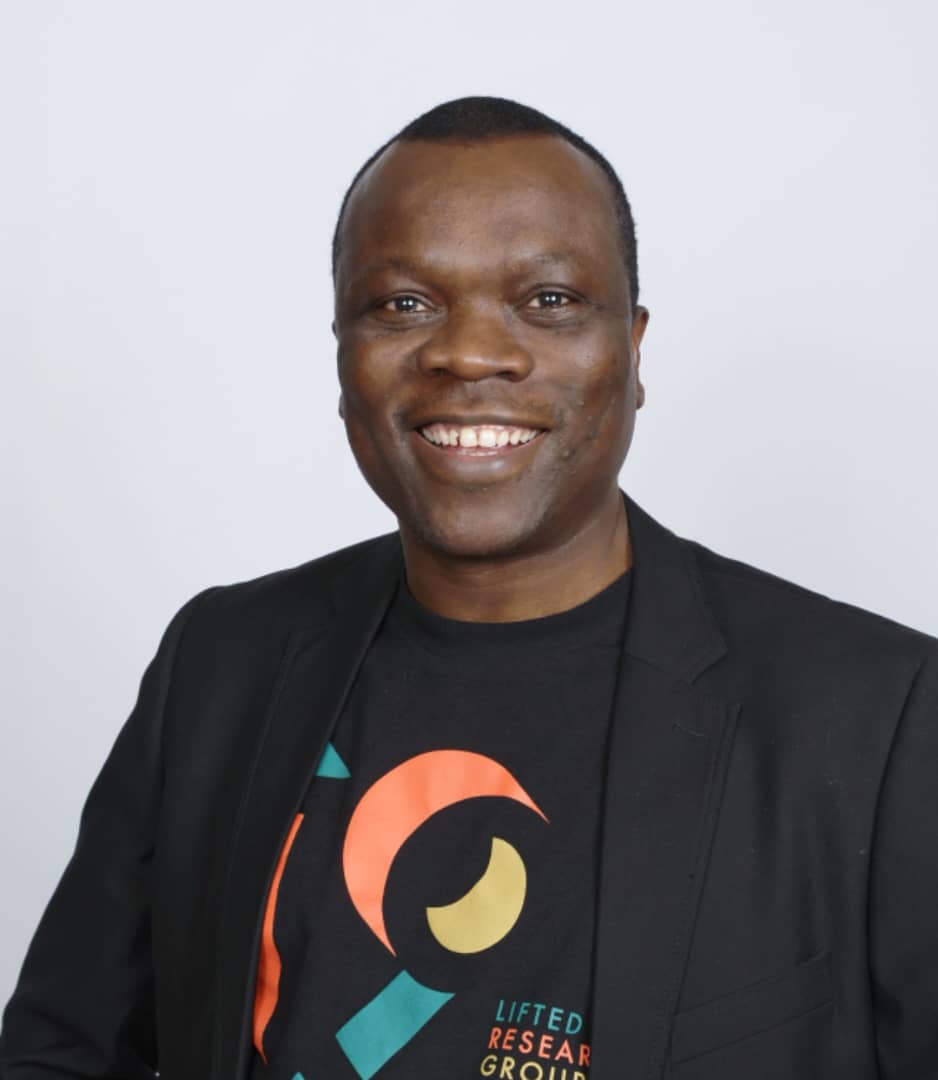
Funke Akindele, Toyin Abraham’s Box Office Success Result Of Strategic Marketing- Banwo
Dr. Ope Banwo has offered a business-focused explanation for the sustained box-office success of Funke Akindele and Toyin Abraham, arguing that their dominance is the result of strategic market alignment rather than luck or social media gimmicks.
Responding to criticism from some veteran actors and filmmakers over cinema promotion styles, Banwo explained that film marketing is ultimately about driving human behaviour—ticket purchases—not preserving dignity or tradition.
“Cinema marketing is not about what feels respectable to producers,” Banwo said. “It’s about what moves people to show up and pay.”
He described Akindele’s success as a textbook example of systems thinking, noting that she combined acting talent with production control, distribution knowledge, audience intelligence, and aggressive marketing.
The result, he said, includes five straight years of box-office leadership, multiple billion-naira cinema runs, and ownership of four of the top five highest-grossing Nollywood films of all time.
Banwo placed Toyin Abraham just behind Akindele, describing her as Gen-Z-literate by strategy rather than age, with a strong grasp of market psychology and audience engagement.
He noted that while some producers rely on third-party funding and pre-sales to streaming platforms, others must recoup investments directly from cinema audiences, making marketing hustle unavoidable.
“The women being criticised are accountable to the market,” Banwo said. “They face the audience directly, and the audience keeps rewarding them.”
Banwo concluded that until alternative strategies consistently outperform the current box-office leaders, criticism should give way to data-driven analysis.
“In cinema, the scoreboard does not lie,” he said. “And right now, the market has spoken.”
-

 celebrity radar - gossips6 months ago
celebrity radar - gossips6 months agoWhy Babangida’s Hilltop Home Became Nigeria’s Political “Mecca”
-

 society6 months ago
society6 months agoPower is a Loan, Not a Possession: The Sacred Duty of Planting People
-

 news6 months ago
news6 months agoTHE APPOINTMENT OF WASIU AYINDE BY THE FEDERAL GOVERNMENT AS AN AMBASSADOR SOUNDS EMBARRASSING
-

 Business6 months ago
Business6 months agoBatsumi Travel CEO Lisa Sebogodi Wins Prestigious Africa Travel 100 Women Award








